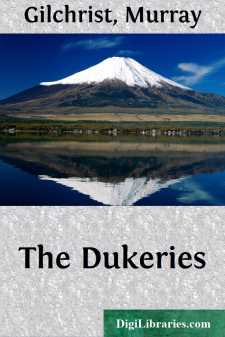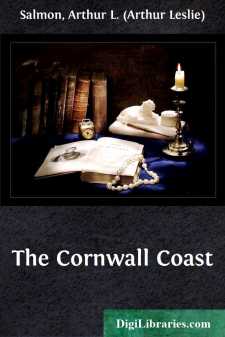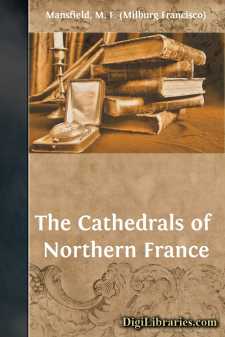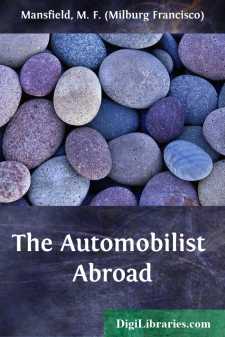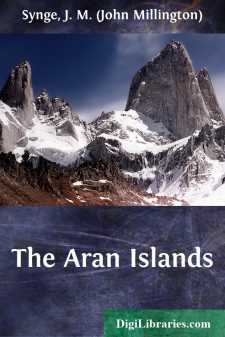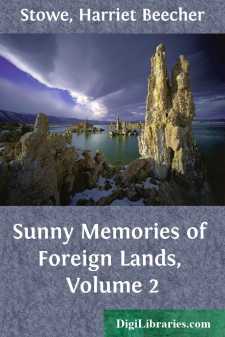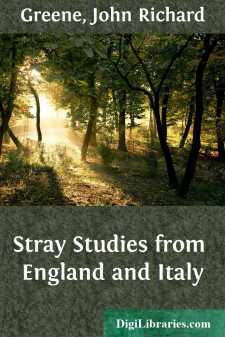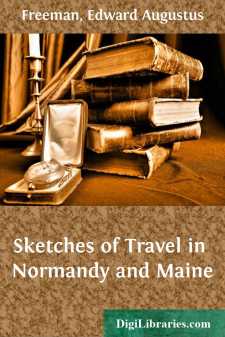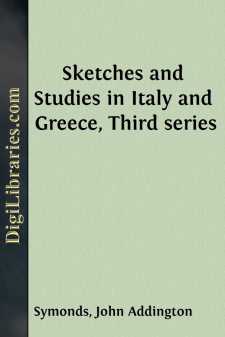Travel
- Africa 29
- Alaska 3
- Asia 46
- Australia & Oceania 26
- Canada 31
- Caribbean & West Indies 5
- Central America 1
- Europe
- General 39
- Maps & Road Atlases 1
- Mexico 10
- Middle East 18
- Polar Regions 7
- Reference 11
- Restaurants 1
- Russia 6
- South America 16
- United States 71
Europe Books
Sort by:
by:
Murray Gilchrist
WORKSOP AND THE MANOR Although within the last twenty-five years Worksop has suffered many changes, unfortunate enough from an æsthetic point of view, the Dukeries end of the principal street still suggests the comfortable market town in the neighbourhood of folk of quality. The only relic of notable antiquity is the quaint inn, known as the Old Ship—a building with projecting upper story and carved...
more...
ROAD MAPS FOR THE CORNWALL COAST Those who travel through Cornwall by cycle or motor-car will usually find very good roads, but for the most part these only touch the coast at special points; and in some cases it will be wise to leave bicycle or car at hotel or farm if the coast is to be fitly explored. The study of a map will show the tourist what to expect, and he may note the parts where, if he...
more...
by:
E. W. Haslehust
PLYMOUTH TO LAND'S END"By Tre, Pol, and Pen,You may know the Cornishmen."The majority of our English counties possess some special feature, some particular attraction which acts as a lodestone for tourists, in the form of a stately cathedral, striking physical beauty, or a wealth of historical or literary associations. There are large districts of rural England that would have remained...
more...
APOLOGIA "There are two ways of writing a book of travel: to recount the journey itself or the results of it." This is also the case with regard to any work which attempts to purvey topographical or historical information of a nature which is only to be gathered upon the spot; and, when an additional side-light is shown by reason of the inclusion, as in the present instance, of the artistic and...
more...
Chapter I We have progressed appreciably beyond the days of the old horseless carriage, which, it will be remembered, retained even the dashboard. To-day the modern automobile somewhat resembles, in its outlines, across between a decapod locomotive and a steam fire-engine, or at least something concerning the artistic appearance of which the layman has very grave doubts. The control of a restive horse,...
more...
Part I I am in Aranmor, sitting over a turf fire, listening to a murmur of Gaelic that is rising from a little public-house under my room. The steamer which comes to Aran sails according to the tide, and it was six o'clock this morning when we left the quay of Galway in a dense shroud of mist. A low line of shore was visible at first on the right between the movement of the waves and fog, but when...
more...
LETTER XIX. May 19. Dear E.:— This letter I consecrate to you, because I know that the persons and things to be introduced into it will most particularly be appreciated by you. In your evening reading circles, Macaulay, Sidney Smith, and Milman have long been such familiar names that you will be glad to go with me over all the scenes of my morning breakfast at Sir Charles Trevelyan's yesterday....
more...
A BROTHER OF THE POOR. There are few stiller things than the stillness of a summer's noon such as this, a summer's noon in a broken woodland, with the deer asleep in the bracken, and the twitter of birds silent in the coppice, and hardly a leaf astir in the huge beeches that fling their cool shade over the grass. Afar off a gilded vane flares out above the grey Jacobean gables of Knoll, the...
more...
PREFACE "Beyond doubt the finished historian must be a traveller: he must see with his own eyes the true look of a wide land; he must see, too, with his eyes the very spots where great events happened; he must mark the lie of a city, and take in, as far as a non-technical eye can, all that is special about a battle-field." So wrote Mr. Freeman in his Methods of Historical Study, and he...
more...
FOLGORE DA SAN GEMIGNANO Students of Mr. Dante Gabriel Rossetti's translations from the early Italian poets (Dante and his Circle. Ellis & White, 1874) will not fail to have noticed the striking figure made among those jejune imitators of Provençal mannerism by two rhymesters, Cecco Angiolieri and Folgore da San Gemignano. Both belong to the school of Siena, and both detach themselves from...
more...


